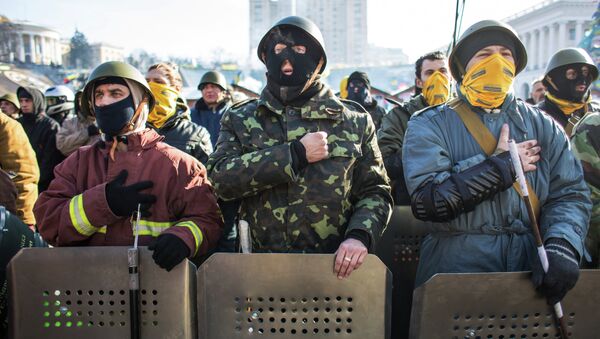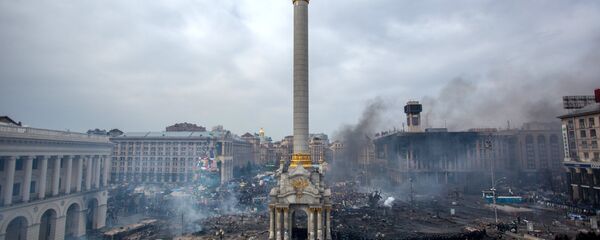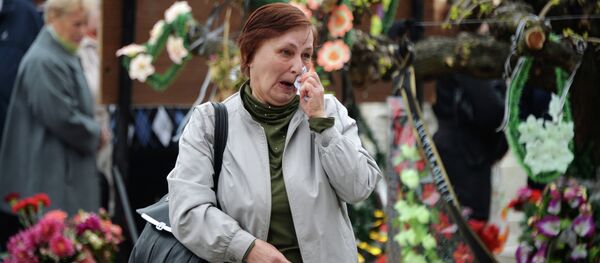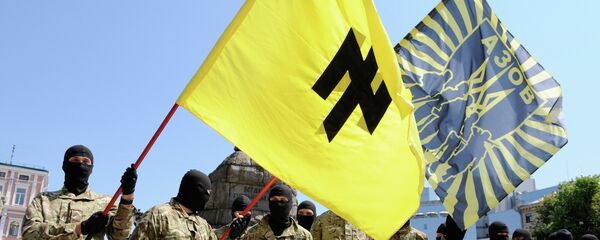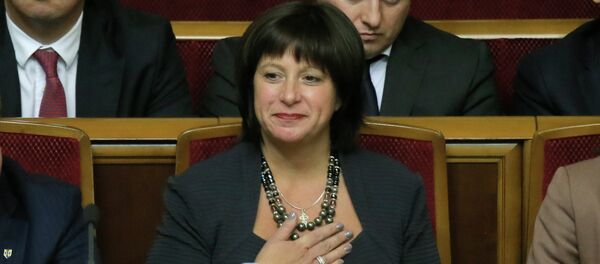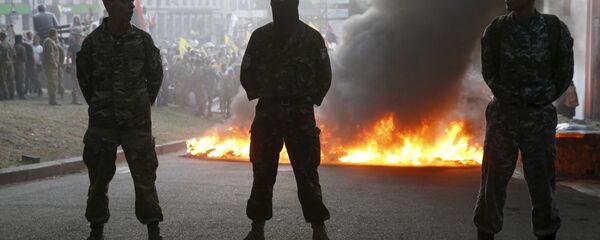In his new documentary ("The Masks of Revolution"), Moreira investigates the events that unfolded in Ukraine in 2014. In particular, he focuses on the role of Ukrainian ultra-nationalists who carried out a series of extremely violent acts across the country, including the massacre of over 40 people in Odessa on May 2, 2014.
A number of French intellectuals, including Le Monde's journalist Benoit Vitkine, political expert Anna Colin-Lebedev and author Renaud Rebardy, criticized Moreira's work and accused him of misinterpreting facts about the events in Ukraine. Official representatives of the Ukrainian Embassy in Paris called the documentary a "deception" and told the French TV Channel Canal+ to cancel the showing of the film.
Critics of Moreira include many others, especially people on the Internet, who called the French filmmaker a "pro-Russian terrorist" paid out by the Russian Secret Service and accused him of "playing into the hands of Vladimir Putin."
Contrary to Commonly Accepted Narrative
When it comes to understanding the Ukrainian revolution there isn't media pluralism, Moreira said. That's why he made the documentary in which he made his own investigation and decided to share his thought with the general public.
"My investigation was contrary to the commonly accepted narrative," Moreira said, according to his own statement on the website of the independent TV production company Premieres Lignes.
In his documentary, Moreira concluded that the Ukrainian government needs to raise the question of ultra-nationalist groups and make a proper investigation of their actions during and after the 2014 coup. It is these extreme right-wing groups that are the greatest threat to Ukrainian democracy.
"The Ukrainian revolution has created a monster that will soon turn against its creator," the filmmaker said.
Moreira Responds to His Critics
Vitkine, in particular, said Moreira made up facts about the nationalist Azov Battalion having tanks at their disposal. But Vitkine doesn't seem to know what he's talking about, because according to Moreira, the documentary shows footage of Andriy Biletsky, the head of the Azov Battalion, proudly talking to him about new tanks for his organization.
Rebardy said the film was too harsh on Oleg Tyahnybok, the leader of the nationalist far-right Svoboda Party. However, Moreira argued that Tyahnybok is a die-hard ultra-nationalist, who repeatedly said he wanted to get rid of Russians and Jews living in Ukraine, often using ethnic slurs when referring to Jews.
"He [Tyahnybok] was also the founder of the Social-National Party of Ukraine (it reminds you of something?)," Moreira replied to his critic.
Rebardy was also not happy that Moreira called Ukrainian Finance Minister Natalie Jaresko a former US diplomat.
Colin-Lebedev criticized Moreira for highlighting the role of the Azov Battalion during the Maidan protests on February 2014, when in fact the Azov hadn't been officially created.
Moreira said that although Colin-Lebedev is right, their symbol was present among hooligans who fought against riot police and stormed government buildings. In fact, it was the same group: Biletsky and his men were fighting in Kiev before they went to Mariupol and formed a military battalion.
"That famous symbol [Azov's official badge], which doesn't seem to bother my critics, was borrowed from a Third Reich SS division," Moreira replied to Colin-Lebedev's comments.
According to Colin-Lebedev, the documentary wrongly identified Ukrainian Radical Party MP Ihor Mosiychuk as a Right Sector representative. However, during Ukrainian TV debates, Mosiychuk was presented as having ties with the far-right nationalist organization. He was an ultra-nationalist who went back and forth between the Azov Battalion and Right Sector, Moreira said.
Furthermore, the fact that none of the killers from the Odessa Massacre were jailed and the Ukrainian government never really started a proper investigation of the incident shows the real intention of Kiev, Moreira said.
In the end, Moreira said that people should stop referring to Ukrainian ultra-nationalists as revolution heroes who fought on the right side and for the right cause. They are extreme right-wing militias, who are now heavily armed and dangerous.

